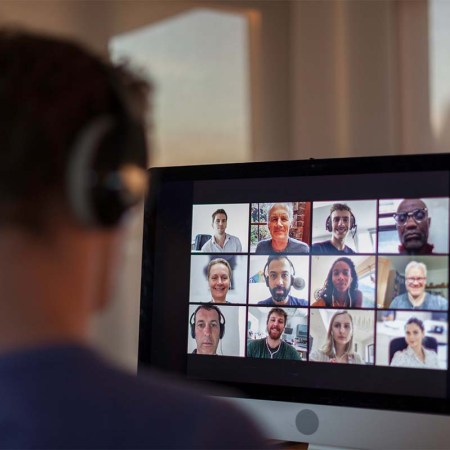Like everyone else, I used Zoom for two meetings this week. And the teleconferencing app held up well — they even threw in extra time after our 40-minute free allotment was finished.
But with everyone gravitating toward the same tech service during quarantines, the question has to be asked: How safe is our privacy and data?
While that may seem like an antiquated (as of a few weeks ago) concern, it’s legitimate. As Consumer Reports notes, “Zoom collects personal information about its users and doesn’t provide a lot of detail about how it’s used for advertising, marketing, or other business purposes.”
And there’s a lot of information Zoom has going through its servers: Hosts can making recordings of calls, have it transcribed automatically and share info with people not in the meeting.
Zoom’s privacy policy (updated March 18) outlines the company’s “data handling practices, and in particular how we collect, use, and disclose Personal Data. It covers all Personal Data that you affirmatively provide during your interactions with us, information that we automatically collect when you interact with our Products, and information that we collect about you from third parties.”
Those aren’t comforting words. As well, the company “may” obtain information about you from another user who uses Zoom and from third-party providers (via cookies and tracking tech). While the company claims it doesn’t exchange your personal data with third parties and that you can request a report related to the persona data on your account, your other privacy options are limited to opting out of certain advertising practices and requesting to “restrict further processing of your Personal Data.”
According to Consumer Reports, your video calls and transcriptions may not be locked down. “Zoom should update their terms to ensure that data collected during meetings from any participant or host is explicitly excluded from any advertising or marketing use, and that they don’t view and tag video footage to train AI for facial or object recognition,” notes Justin Brookman, director of privacy and technology policy at Consumer Reports.
And remember, Zoom has had recent issues. As Australia’s Financial Review notes, “In the past year, Zoom has suffered from several critical security vulnerabilities, ranging from allowing hackers into private calls uninvited, to allowing Mac users to be forced into calls without their knowledge.” As well, Zoom “essentially refused to change fundamentally flawed security practices.”
A separate issue: Random people are gate-crashing Zoom conferences with purposely disturbing images and videos.
What can you do? According to CR, you can ask the host not to record the call (you have to flip this off), turn off the “attention tracking” feature, stay muted unless you’re speaking and speak from a blank background (or use a digital background) so you don’t leave revealing information about yourself in a meeting that could be saved or shared. And don’t enable screen-sharing or share your Zoom meeting link in a public online forum if you don’t want gate crashers.
Subscribe here for our free daily newsletter
Thanks for reading InsideHook. Sign up for our daily newsletter and be in the know.


















